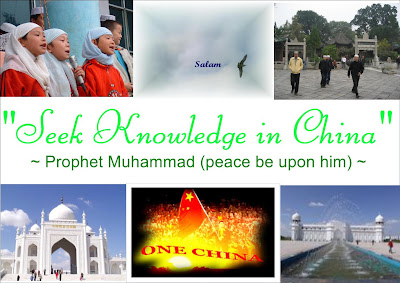This is Blog that have data As I Think. some of my Thoughts and some My experience and MY Subjects
Children are Cute&Give Expressions
If you want to improve non-verbal communication or body language then this can help you , this is very cute and beautiful expressions ever. you will really enjoy talks and expressions
100 greatest funny videos in the world
i really enjoy it . hope you will .......... that i like most is child talking in Car
"World's most dangerous man"
this is CraZy man, he put a scorpion in his pant..............oooooooohhh
Human Body And Fruits
FRUITS AND HUMAN BODY
CARROTS EYES
SLICE a carrot and it looks just like an eye, right down to the pattern of the iris. Its a clear clue to the importance this everyday veg has for vision. Carrots get their orange colour from a plant chemical called betacarotene, which reduces the risk of developing cataracts. The chemical also protects against macular degeneration an age-related sight problem that affects one in four over-65s. It is the most common cause of blindness in Britain . But popping a betacarotene pill doesnt have the same effect, say scientists at Johns Hopkins Hospital in Baltimore
WALNUT BRAIN
WALNUT BRAIN
THE gnarled folds of a walnut mimic the appearance of a human brain - and provide a clue to the benefits. Walnuts are the only nuts which contain significant amounts of omega-3 fatty acids. They may also help head off dementia. An American study found that walnut extract broke down the protein-based plaques associated with Alzheimers disease. Researchers at Tufts University in Boston found walnuts reversed some signs of brain ageing in rats. Dr James Joseph, who headed the study, said walnuts also appear to enhance signalling within the brain and encourage new messaging links between brain cells.
TOMATO HEART
TOMATO HEART
A TOMATO is red and usually has four chambers, just like our heart. Tomatoes are also a great source of lycopene, a plant chemical that reduces the risk of heart disease and several cancers. The Womens Health Study an American research programme which tracks the health of 40,000 women found women with the highest blood levels of lycopene had 30 per cent less heart disease than women who had very little lycopene. Lab experiments have also shown that lycopene helps counter the effect of unhealthy LDL cholesterol. One Canadian study, published in the journal Experimental Biology and Medicine, said there was convincing vidence that lycopene prevented coronary heart disease.
GRAPES LUNGS
OUR lungs are made up of branches of ever-smaller airways that finish up with tiny bunches of tissue called alveoli. These structures, which resemble bunches of grapes, allow oxygen to pass from the lungs to the blood stream. One reason that very premature babies struggle to survive is that these alveoli do not begin to form until week 23 or 24 of pregnancy. A diet high in fresh fruit, such as grapes, has been shown to reduce the risk of lung cancer and emphysema. Grape seeds also contain a chemical called proanthocyanidin, which appears to reduce the severity of asthma triggered by allergy.
CHEESE BONES
CHEESE BONES
A nice holey cheese, like Emmenthal, is not just good for your bones, it even resembles their internal structure. And like most cheeses, it is a rich source of calcium, a vital ingredient for strong bones and reducing the risk of osteoporosis later in life. Together with another mineral called phosphate, it provides the main strength in bones but also helps to power muscles. Getting enough calcium in the diet during childhood is crucial for strong bones. A study at Columbia University in New York showed teens who increased calcium intake from 800mg a day to 1200mg equal to an extra two slices of cheddar - boosted their bone density by six per cent.
GINGER STOMACH
GINGER STOMACH
Root ginger, commonly sold in supermarkets, often looks just like the stomach. So its interesting that one of its biggest benefits is aiding digestion. The Chinese have been using it for over 2,000 years to calm the stomach and cure nausea, while it is also a popular remedy for motion sickness. But the benefits could go much further.
Tests on mice at the University of Minnesota found injecting the chemical that gives ginger its flavour slowed down the growth rate of bowel tumours
BANANA (SMILE) DEPRESSION
Tests on mice at the University of Minnesota found injecting the chemical that gives ginger its flavour slowed down the growth rate of bowel tumours
BANANA (SMILE) DEPRESSION
Cheer yourself up and put a smile on your face by eating a banana. The popular fruit contains a protein called tryptophan. Once it has been digested, tryptophan then gets converted in a chemical neurotransmitter called serotonin. This is one of the most important mood-regulating chemicals in the brain and most anti-depressant drugs work by adjusting levels of serotonin production. Higher levels are associated with better moods.
MUSHROOM EAR
MUSHROOM EAR
Slice a mushroom in half and it resembles the shape of the human ear. And guess what? Adding it to your cooking could actually improve your hearing. Thats because mushrooms are one of the few foods in our diet that contain vitamin D. This particular vitamin is important for healthy bones, even the tiny ones in the ear that transmit sound to the brain.
BROCCOLI CANCER
Close-up, the tiny green tips on a broccoli head look like hundreds of cancer cells. Now scientists know this disease-busting veg can play a crucial role in preventing the disease. Last year, a team of researchers at the US National Cancer Institute found just a weekly serving of broccoli was enough to reduce the risk of prostate cancer by 45 per cent. In Britain , prostate cancer kills one man every hour.
BROCCOLI CANCER
Islam in Xinjiang
Islam in Xinjiang
Taoism was at its height amongst the Hans around the 5th century and was brought along by the Hans who had mostly settled down at places like Turfan and Hami. Taoism was eventually able to spread around the entire Xinjiang in the Ching Dynasty.
Around 6th century BC, Manichaeism came to Xinjiang from Persia via Central Asia. In the mid of the 9th century, the Uighurs, whose state religion was still Manichaeism at that time, moved westward to Xinjiang and they had facilitated the promotion and development of Manichaeism. In Turfan, Uighur Manicheans built temples, dug grottoes, translated scriptures, painted frescoes and spread the Manichean doctrine and culture.


A Temple of Manichaeism
Muslims in China enjoy greater freedom and respects than their brothers and sisters in France where banning, rejection and discrimination against Muslims, are openly written into the French Laws. French values are legally being imposed upon Muslims in the fancy name of integrity and assimilation. In China, Muslim women won't be judged by their level of submissive to their male relatives and religion. Nobody could yank their headscarves before entering a public school.
Google Faces Fallout In China
But mainland Chinese users on Tuesday could not see uncensored Hong Kong content because government computers had either disabled searches for objectionable content completely or blocked links to certain results.
Beijing officials were clearly angered Tuesday by Google’s decision to close its Internet search service in China and redirect users to the Hong Kong site, a move that focused global attention on the government’s censorship policies, and there were signs of possible escalation in the dispute.
China’s biggest cellular communications company, China Mobile, was expected to cancel a deal that had placed Google’s search engine on its mobile Internet home page, used by millions of people daily. In interviews, business executives close to industry officials said the company was planning to scrap the deal under government pressure, despite the fact that China Mobile has yet to contract with a replacement.
Similarly, China’s second-largest mobile company, China Unicom, was said by analysts and others to have delayed or killed the imminent introduction of a cellphone based on Google’s Android platform. One major Internet portal, Tom.com, already had ceased using Google to power its search engine.
Technology analysts and the business executives, who demanded anonymity for fear of retaliation, said that Google might also face problems in keeping its advertising sales force, which is crucial to the success of its Chinese language service.
Several held out the prospect that the government could shut down the company’s Chinese search service entirely by blocking access to Google’s mainland address, google.cn, or to its Hong Kong Web site. As of Tuesday, users who go to google.cn are automatically being sent to the Hong Kong address, google.com.hk.
“It’s going to boil down to whether authorities feel it is acceptable for users to be redirected to that site without having to figure it out themselves,” said Mark Natkin, managing director of Marbridge Consulting, a Beijing-based technology research firm.
At the same time, Mr. Natkin said that the government might still be wary of agitating loyal Google users in China, who tend to be highly educated and vocal. “To block Google entirely is not necessarily a desirable outcome for the government,” he said.
In northern Beijing on Tuesday, a few Chinese passers-by laid flowers or chocolates on the large metal “Google” sign outside Google’s office building, The Associated Press reported.
The two sides had been at loggerheads since early January, when Google said it would end the voluntary censorship of its China-based search service in response to attacks by Chinese hackers on its e-mail service and its corporate database. Two months of sporadic talks failed to bridge the divide between Google and the Chinese government, which insists that its citizens’ access to the Internet be stripped of offensive and some politically sensitive material.
The government denounced Google on Tuesday, calling its decision “totally wrong,” and the state-run news media accused Google of politicizing the Internet by trying to foist Western content on Chinese users.
One Western official who spoke on condition of anonymity said that China now speaks of Internet freedom in the context of one of its “core interests” — issues of sovereignty on which Beijing will brook no intervention. The most commonly cited core issues are Taiwan and Tibet. The addition of Internet freedom is an indication that the issue has taken on nationalistic overtones.
Google said in a blog posting Tuesday that Chinese officials had never wavered in negotiations from their insistence that Google censor its search results.
The Beijing business magazine Caijing reported last week that Google had employed Brent Scowcroft, President George H. W. Bush’s national security adviser, to ask the Chinese for direct talks in January. Chinese officials said on Tuesday that the two sides held two face-to-face meetings in January and February, and Caijing reported that the second meeting went poorly.
One Chinese businessman said in an interview on Monday that talks “broke down completely” at the end.
Google executives decided by Monday evening to keep the firm’s non-search business operations on mainland China intact, a Western official briefed on the discussions said. Google’s decision to redirect Chinese search requests to Hong Kong — rather than scrap the Chinese service entirely — apparently was made final only on Monday
Want read more click me
Beijing officials were clearly angered Tuesday by Google’s decision to close its Internet search service in China and redirect users to the Hong Kong site, a move that focused global attention on the government’s censorship policies, and there were signs of possible escalation in the dispute.
China’s biggest cellular communications company, China Mobile, was expected to cancel a deal that had placed Google’s search engine on its mobile Internet home page, used by millions of people daily. In interviews, business executives close to industry officials said the company was planning to scrap the deal under government pressure, despite the fact that China Mobile has yet to contract with a replacement.
Similarly, China’s second-largest mobile company, China Unicom, was said by analysts and others to have delayed or killed the imminent introduction of a cellphone based on Google’s Android platform. One major Internet portal, Tom.com, already had ceased using Google to power its search engine.
Technology analysts and the business executives, who demanded anonymity for fear of retaliation, said that Google might also face problems in keeping its advertising sales force, which is crucial to the success of its Chinese language service.
Several held out the prospect that the government could shut down the company’s Chinese search service entirely by blocking access to Google’s mainland address, google.cn, or to its Hong Kong Web site. As of Tuesday, users who go to google.cn are automatically being sent to the Hong Kong address, google.com.hk.
“It’s going to boil down to whether authorities feel it is acceptable for users to be redirected to that site without having to figure it out themselves,” said Mark Natkin, managing director of Marbridge Consulting, a Beijing-based technology research firm.
At the same time, Mr. Natkin said that the government might still be wary of agitating loyal Google users in China, who tend to be highly educated and vocal. “To block Google entirely is not necessarily a desirable outcome for the government,” he said.
In northern Beijing on Tuesday, a few Chinese passers-by laid flowers or chocolates on the large metal “Google” sign outside Google’s office building, The Associated Press reported.
The two sides had been at loggerheads since early January, when Google said it would end the voluntary censorship of its China-based search service in response to attacks by Chinese hackers on its e-mail service and its corporate database. Two months of sporadic talks failed to bridge the divide between Google and the Chinese government, which insists that its citizens’ access to the Internet be stripped of offensive and some politically sensitive material.
The government denounced Google on Tuesday, calling its decision “totally wrong,” and the state-run news media accused Google of politicizing the Internet by trying to foist Western content on Chinese users.
One Western official who spoke on condition of anonymity said that China now speaks of Internet freedom in the context of one of its “core interests” — issues of sovereignty on which Beijing will brook no intervention. The most commonly cited core issues are Taiwan and Tibet. The addition of Internet freedom is an indication that the issue has taken on nationalistic overtones.
Google said in a blog posting Tuesday that Chinese officials had never wavered in negotiations from their insistence that Google censor its search results.
The Beijing business magazine Caijing reported last week that Google had employed Brent Scowcroft, President George H. W. Bush’s national security adviser, to ask the Chinese for direct talks in January. Chinese officials said on Tuesday that the two sides held two face-to-face meetings in January and February, and Caijing reported that the second meeting went poorly.
One Chinese businessman said in an interview on Monday that talks “broke down completely” at the end.
Google executives decided by Monday evening to keep the firm’s non-search business operations on mainland China intact, a Western official briefed on the discussions said. Google’s decision to redirect Chinese search requests to Hong Kong — rather than scrap the Chinese service entirely — apparently was made final only on Monday
Want read more click me
Subscribe to:
Comments (Atom)
-
Advertising agency is an independent organization in which the technical and artistic people make ad f...
-
Your Three minutes can help Companies to develop their business plan for community development. Loading...
-
3M has released details of a tiny Micro projector that is designed to be used inside mobile phones. As you can see from the picture the proj...




























